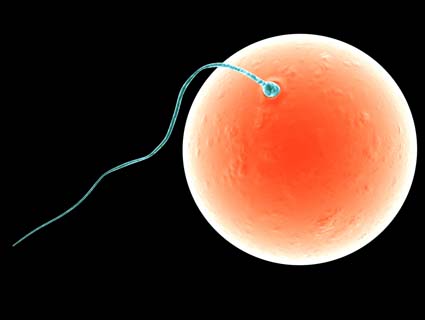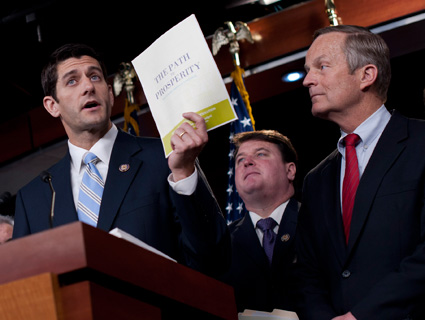
<a href="http://www.flickr.com/photos/gageskidmore/7827257202/sizes/z/in/photostream/">Gage Skidmore</a>/Flickr
Over his career in the House, GOP VP candidate Paul Ryan has endorsed a number of measures that would limit or completely bar abortion in the United States. Although Ryan’s anti-abortion credentials have gotten plenty of coverage since he was announced as Romney’s veep choice, the full extent of the measures he’s endorsed is breathtaking, and includes cosponsoring a measure that would allow hospitals to deny women access to an abortions even if their life is in immediate danger.
The House passed the Protect Life Act in October 2011, with Ryan as one of its 145 cosponsors. The measure would allow hospitals to refuse to “participate in” or “provide referrals” for abortions. Current law states that any hospital that receives government funds is required to provide emergency care for anyone. If a hospital is affiliated with a religious institution that refuses to provide abortion care under any circumstance, they’re legally required to transfer the patient to a hospital that will. But the measure Ryan cosponsored would remove that obligation, leading opponents to criticize the bill for letting women “die on the floor.”
Here’s a rundown of other extreme anti-abortion measures Ryan cosponsored:
- The Sanctity of Human Life Act: This bill would have written into law that zygotes are legal people from the moment of conception. Like other, similar bills, it grants fertilized eggs the same rights as adult humans, and would make in vitro fertilization and some forms of contraception the legal equivalents of murder.
- The Unborn Child Pain Awareness Act: Ryan cosponsored this bill in 2006, 2007, and 2010. It would require doctors to provide medically dubious information to all women seeking an abortion after 20 weeks gestation. The bill includes specific language that the Department of Health and Human Services would need to include in a brochure that doctors would be required to give to women. The brochure includes language like “the process of being killed in an abortion will cause your unborn child pain.” It would also require doctors to offer “anesthesia or other pain-reducing drug” for the fetus.
- The Child Interstate Abortion Notification Act: This bill, introduced in 2005, 2007, and 2011, federalizes state laws on parental notification for minors seeking an abortion. The bill requires doctors to notify the minor’s parent or guardian in writing and wait 24 hours before providing an abortion.
- The District of Columbia Pain-Capable Unborn Child Protection Act: This 2012 bill would ban abortions in the capital after 20 weeks gestation. It failed in the House on July 31.
In addition to cosponsoring these bills, Ryan has cast 59 votes on abortion issues, all of them anti-choice, according to a tally by NARAL Pro-Choice America, a leading pro-abortion-rights group.












